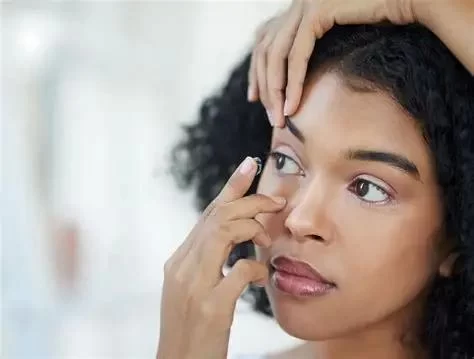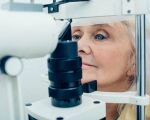
- 1-importance-of-hygiene
- 2-daily-care-routine
- 3-common-mistakes-and-their-risks
- 4-professional-insights-and-case-studies
- 5-choosing-products-and-services
1. Why Maintaining Proper Contact Lens Hygiene Is Vital for Eye Health
Contact lenses are a convenient solution for vision correction, but their safety depends heavily on hygiene practices. Failing to maintain cleanliness can lead to infections such as keratitis, dry eyes, or even more severe complications. Understanding the best practices for contact lens hygiene not only protects your eyes but also extends the lifespan of your lenses, enhancing comfort and vision quality. Many people underestimate the importance of thorough hygiene, which often leads to preventable eye issues.
Good hygiene goes beyond simply washing hands. It involves careful cleaning, disinfecting, and storage routines tailored to your lens type. For instance, daily disposable lenses have different care needs compared to monthly or yearly lenses. By adopting proper hygiene measures, you dramatically reduce the risk of contamination from bacteria, fungi, and other pathogens.
1.1 The Science Behind Contact Lens Hygiene
Contact lenses sit directly on the eye’s surface, creating a potential entry point for microorganisms. The warm, moist environment beneath the lens can be a breeding ground for germs if not managed correctly. According to eye care professionals, the lens acts almost like a shield—protective but also a potential carrier for infections if hygiene is neglected.
Understanding this dynamic helps users appreciate why simple steps like hand washing and proper lens cleaning are crucial. Neglecting these steps can result in serious infections, causing pain, blurred vision, and in severe cases, permanent damage.
2. Daily Care Routine: Step-by-Step Practices for Optimal Contact Lens Hygiene
Mastering your daily contact lens routine ensures your eyes stay healthy and comfortable. Here’s a breakdown of essential daily practices:
2.1 Hand Hygiene Before Handling Lenses
Always wash your hands thoroughly with soap and water before touching your lenses. Avoid scented or oily soaps that can leave residues, irritating your eyes or compromising the lens material. Dry hands with a lint-free towel to prevent particles from transferring to your lenses.
2.2 Proper Cleaning and Disinfection Techniques
Use only recommended cleaning solutions for your lens type. Never use tap water or saliva, as they contain microorganisms that can cause infections. Rub the lenses gently with the solution even if using “no-rub” products, as this mechanical cleaning significantly reduces microbial load.
2.3 Safe Storage Habits
Store lenses in a clean, disinfected case filled with fresh solution each time. Avoid topping off or reusing old solution, which can harbor bacteria. Replace your lens case every three months or as recommended to prevent contamination buildup.
2.4 Avoiding Overnight Wear Unless Specified
Wearing lenses overnight can drastically increase the risk of infection. Unless your lenses are specifically designed for extended wear, always remove them before sleep to allow your eyes to breathe and recover.
3. Common Mistakes in Contact Lens Hygiene and Their Consequences
Despite clear guidelines, many users fall into habits that jeopardize eye health. Understanding these pitfalls can help you avoid them:
3.1 Using Expired or Improper Solutions
Expired or incorrect cleaning solutions can be ineffective or harmful. Always check expiration dates and use products approved by eye care professionals.
3.2 Neglecting to Replace Lens Cases
Lens cases accumulate deposits and microbes over time, becoming reservoirs for infection. Neglecting to replace them regularly is a major hygiene error.
3.3 Swimming or Showering with Lenses On
Water exposure exposes lenses to microorganisms like Acanthamoeba, a dangerous parasite that can cause severe eye infections. Avoid water contact by removing lenses beforehand.
3.4 Sleeping in Lenses Not Designed for It
Extended lens wear without breaks increases dryness, oxygen deprivation, and risk of microbial keratitis, which can threaten vision.
4. Professional Insights and Real-Life Stories Enhancing Understanding of Lens Hygiene
Eye care specialists emphasize personalized care for contact lens users. For example, a recent case involved a patient who developed a corneal ulcer after swimming with lenses, despite otherwise following hygiene guidelines. This highlights that even small lapses or risky behaviors can have serious consequences.
Experts at Eye Docs recommend routine check-ups and consultations to tailor hygiene practices based on individual eye health and lifestyle. Sharing real experiences from users reinforces the importance of vigilance and consistency.
4.1 Case Study: Recovering from a Contact Lens-Related Infection
Jane, a young professional, experienced redness and pain after accidentally wearing monthly lenses for six weeks straight without changing the case or solution. After seeing an eye specialist, she was treated promptly and educated on best practices, avoiding further damage. Her story underscores how quickly issues can escalate and the value of expert advice.
5. Selecting the Right Products and Support for Maintaining Contact Lens Hygiene
Choosing the right cleaning solutions, storage cases, and even the correct lens type is essential for optimal hygiene. Not all products are created equal, and recommendations vary depending on your eyes and lens material.
For those seeking trusted products and personalized advice, Eye Docs offers expert guidance and a curated selection of lens care items. Whether you need daily disposables, multi-purpose solutions, or replacement cases, finding reliable sources makes maintaining hygiene effortless and effective.
5.1 Tips for Buying Contact Lens Products
Look for products approved by regulatory bodies and recommended by your eye care professional. Avoid buying solutions from unverified sellers to reduce risk of counterfeit or contaminated products.
Eye Docs provides not only quality products but also professional support to answer questions and help build a hygiene routine tailored to your needs.








